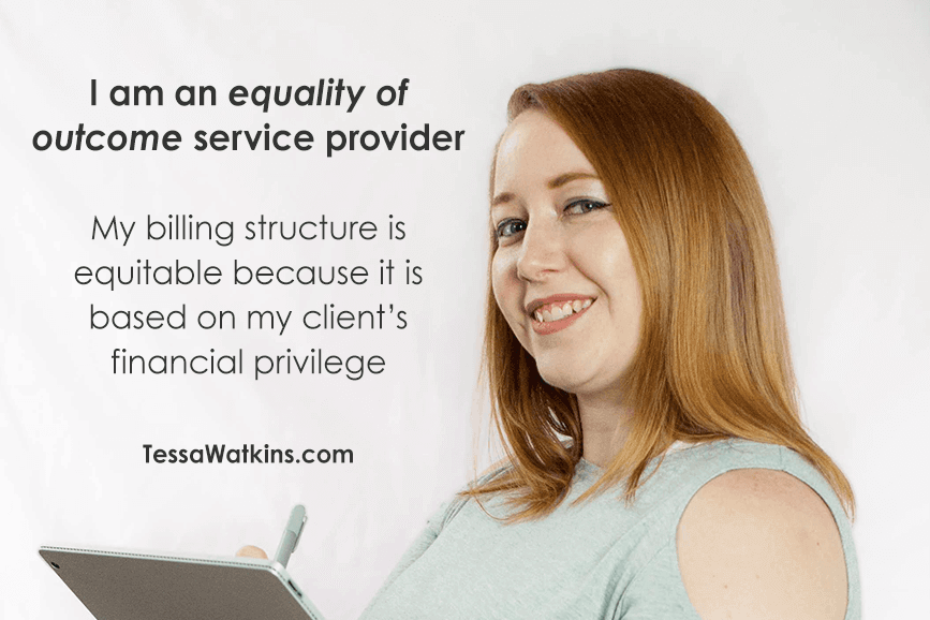Everyone asks me, “what is your hourly rate?” when looking into my web design and development services so please allow me to be totally transparent with you. I am not an equal opportunity service provider; I am an equality of outcome service provider. This means I help financially disadvantaged clients get a website that can actually compete with their financially privileged competitors for organic traffic, and I do this with how I’ve organized my billing structure.
The way I see it, digital advertising agencies, enterprise companies, and companies/organizations that are financially stable have a lot of financial privileges. They have the resources to throw money at teams of people to get the jobs done. Many of these companies have budgets that are upward of $15,000 USD to spend on a website, SEO, and digital marketing.
New and/or small businesses, startups, freelancers, and even just a person who wants a website are disadvantaged compared to those professionals. Your budget for a website may range between “free as possible” up to $5,000 USD. My clients spend an average of $2,000 USD for their first website with me.
Addressing Inequality
However, the real disadvantage comes from the lack of experience in digital advertising. Advertising agencies and freelancers like me know exactly what to do and what questions to ask if we don’t. An entrepreneur who just needs a website only knows that they need a website.
The digital marketing industry is no different in that the people who know how to make websites can and do take advantage of the people who don’t. That’s capitalism for you.
Hosting companies may take advantage of you with unnecessary upsells, telling you that you need a special “WordPress” hosting package when all they do is spend 5 extra minutes installing it for you during setup but you still pay an additional monthly for that one-time job.
Those “one-stop shops” may pitch newsletter designs and ongoing content creation, which are valuable services, but may not be what you need right now out of the gate. The cost of those services is not worth the value if you don’t have a following or audience that knows you exist.
So I am here to level that playing field for my clients and I do that by having equitable hourly rates based on my clients’ financial privilege.
Equity vs Equality
If I treated all of my clients equally, then they’d all be paying the same price for the same services. This sounds great in theory, but for a financially privileged enterprise company, this may only be 2% of their overhead costs while a brand new company may be spending 60% of their overhead costs.
I want these small companies to grow and thrive, so I can’t advise them in good conscious to spend so much of their overhead setup costs when they also have their actual business to run (like rent, employee wages, etc.).
It’s all about looking at where someone is starting from and how much can they afford. By reducing the overhead costs for those on a tighter budget, they can put the money they’re saving toward something else.
If I treated all of my clients equitably, then they’d all be paying a price they can afford for the same services, giving them all what they need and providing a higher chance of success for new businesses and startups.
Here is what my equitable billing structure looks like:
Ad Agencies & Financially Privileged Companies
When I freelance or contract with digital advertising agencies or financially privileged and/or stable companies, I charge them a flat rate for my hours. It’s easy for their billing departments to handle and I know they can afford it.
Businesses & Startups on a Tight Budget
For everyone else, each of my tasks has its own hourly rate. This means tasks that are easier for me to perform like CMS edits are cheaper than tasks that are more technical like writing new code. I also apply a 15% discount on my web development services.

